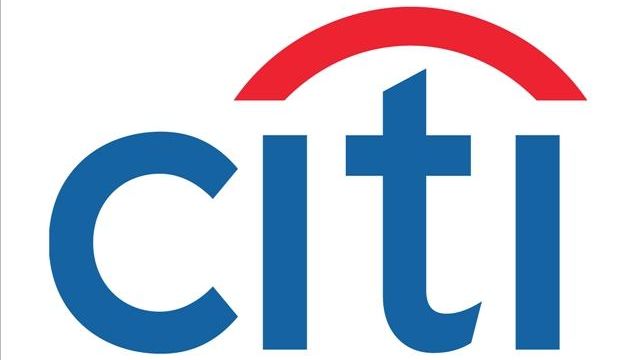Wachovia CEO: Nothing changes for customers
The company will be known as Wachovia, and the headquarters will remain in Charlotte, CEO Robert K. Steel said in a memo to colleagues Monday.
Posted — UpdatedIn a deal facilitated by the Federal Deposit Insurance Corp., Citigroup (NYSE: C) will absorb up to $42 billion of losses from Wachovia's $312 billion loan portfolio, with the FDIC covering any remaining losses, the government agency said Monday. Citigroup also will issue $12 billion in preferred stock and warrants to the FDIC.
The company said in a news release that Citigroup will base the retail bank in Charlotte and the investment bank in New York. Wachovia's securities brokerage and asset management operations weren't included in the buyout.
"Since many details of this agreement are still being finalized, definitive answers to many of your questions remain unknown at this point," Steel's memo said. "What is important to note, however, is that nothing changes today for employees or customers."
Wachovia also employs about 2,000 people in the Triangle, but analysts said those jobs would likely be better insulated because Citigroup has no presence in the region.
"In the short term, I think everyone's going to contract," said Steven Schwarcz, a professor of law and business at Duke University. "Citigroup is a major international bank, and the takeover could (eventually) make Charlotte even more of an international bank center."
The deal greatly expands Citigroup's retail outlets and secures its place among the U.S. banking industry's Big Three, along with Bank of America Corp. and J.P. Morgan Chase & Co. But it comes at a cost: Citigroup said Monday it will seek to sell $10 billion in common stock and slashed its quarterly dividend in half to 16 cents to shore up its capital position.
"This will trickle down adversely through the Charlotte economy," said Mike Walden, an economist with North Carolina State University.
"The good news is depositors should not worry. Things will go on normally," Walden said. "The concern, to me at least as an economist, is what this means to Charlotte and to North Carolina. This is one of the two pillars of the banking system in Charlotte."
Raleigh investment adviser Gerald Townsend said the buyout ended a period that has tried shareholders' patience. Wachovia stock had lost nearly 75 percent of its value this year, through Friday.
Trading was suspended Monday, but the bank's stock dived in pre-trading from $10 a share down to less than $1.
"For Wachovia as an institution, I think the message is, 'It's over.' Its price has plummeted. Its operations – its banking operations, the core of its business – has been sold off to another company. The lights are cut off, the party's over," Townsend said.
The agreement comes after a fevered weekend courtship in which Citigroup and Wells Fargo & Co. both were reportedly studying the books of Wachovia, which suffers from mounting losses linked to its ill-timed 2006 acquisition of mortgage lender Golden West Financial Corp. for roughly $25 billion at the height of the nation's housing boom.
With that purchase, Wachovia inherited a deteriorating $122 billion portfolio of "Pick-A-Payment" loans, Golden West's specialty, which let borrowers skip some payments. Delinquencies and defaults on these types of mortgages have skyrocketed in recent months, causing big losses for the banks.
This summer, Wachovia reported a $9.11 billion loss for the second quarter, announced plans to cut 11,350 jobs – mostly in its mortgage business – and slashed its dividend. Wachovia also boosted its provision for loan losses to $5.57 billion during the second quarter, up from $179 million in the year-ago period.
The FDIC asserted Monday that Wachovia did not fail, that all depositors are protected and that there will be no cost to the Deposit Insurance Fund.
Federal Reserve Chairman Ben Bernanke, in a statement Monday, said he supports the "timely actions" taken by the FDIC "which demonstrate our government's unwavering commitment to financial and economic stability."
Treasury Secretary Henry Paulson also welcomed the sale of Wachovia to Citigroup, saying it would "mitigate potential market disruptions." Paulson said he agreed with the FDIC and the Fed that a "failure of Wachovia would have posed a systemic risk" to the nation's financial system.
"As I have said before, in this period of market stress, we are committed to taking all actions necessary to protect our financial system and our economy," Paulson said.
Now that a deal for Wachovia is complete, the most troubled of the nation's largest financial institutions have been dealt with. However, the FDIC estimated there were 117 banks and thrifts in trouble during the second quarter, the highest level since 2003. And that number is likely to have increased during the third quarter.
With the acquisition of Wachovia, Citigroup has reclaimed its title as the biggest U.S. bank by total assets. Including Wachovia, the bank now has assets of $2.91 trillion, as of June 30. That could change, however, as Citigroup shrinks its balance sheet, a decision Chief Executive Vikram Pandit made in May to rid the bank's books of risky debt.
In terms of current market capitalization, Bank of America Corp. remains the largest U.S. bank, followed by JPMorgan Chase & Co. in second and Citigroup in third place.
Just a short time ago, Citigroup was under the scrutiny of investors who worried about the possibility of its collapse given its massive exposure to mortgage-backed securities. The New York-based bank has not turned a profit for three straight quarters, and lost a total of $17.4 billion during that period after writing down its assets by about $46 billion. That's the most write-downs of any U.S. bank.
The Wachovia deal caps a wave of unprecedented upheaval in the financial sector in the past six months that has redefined the banking industry.
• Credits
Copyright 2024 by WRAL.com and the Associated Press. All rights reserved. This material may not be published, broadcast, rewritten or redistributed.





